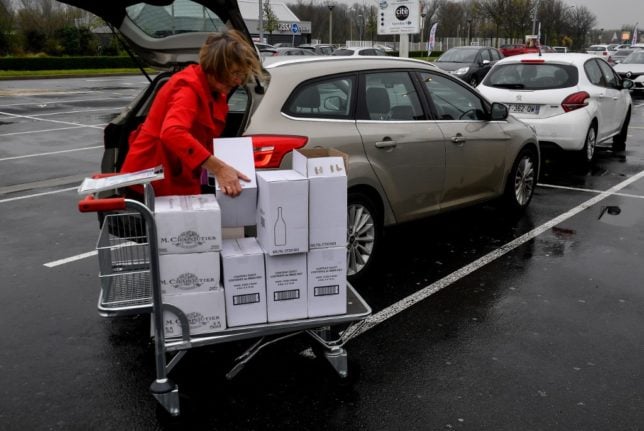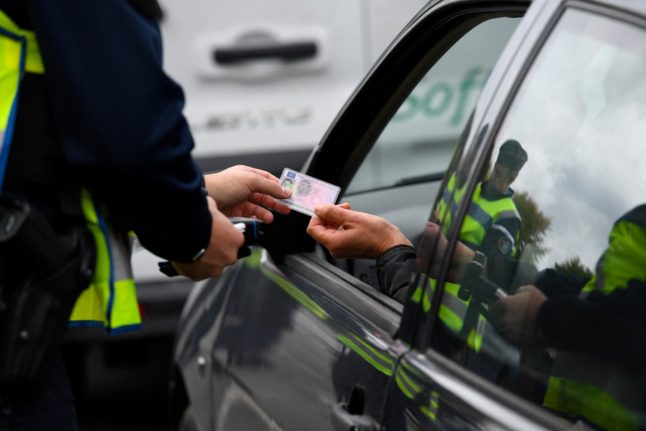Once the Brexit transition period ends on December 31st, there will be much tighter limits on the amount of alcohol and tobacco people can bring into the UK from EU countries.
While bringing back a few bottles as holiday souvenirs will still be allowed, the days of driving to the Calais hypermarché and filling the car with cases of wine and beer will shortly end.
Under the new rules, the following personal allowances have been laid out by the UK government.
As under the old system, these apply only to people bringing in goods for their personal use – anyone who intends to sell on their haul comes under the rule for businesses.
After January 1st 2021 you will be allowed to bring into the UK from the EU;
- 42 litres of beer
- 18 litres (24 standard bottles) of still wine
- 4 litres of spirits OR 9 litres (12 bottles) of sparkling wine, fortified wine or any alcoholic beverage less than 22% ABV
There will also be limits on the amount of tobacco you can bring into the UK
- 200 cigarettes OR
- 100 cigarillos OR
- 50 cigars OR
- 250g tobacco OR
- 200 sticks of tobacco for heating
- or any proportional combination of the above
And it's not just booze and tobacco that will be subject to limits, there will also be a monetary limit on all other goods bought abroad being imported into the UK, so if you intend to hit the designer boutiques of Paris you should limit your purchases.
The value limit is £390 (roughly €430) on goods other than alcohol and tobacco – although it's not totally clear how that will be enforced.

Supermarkets in the Calais area have for years done a roaring trade from British visitors. Photo: AFP
Private jets and boats – further bad news for people travelling by private jet or private boat, their limit for the value of goods is lower at £270 (roughly €300).
If you exceed these limits, you will have to pay import duty on your entire haul, not just the difference between the limit and what you have.
Duty free
People buying alcohol or tobacco in the UK to bring into the EU, will no longer need to pay duty, so good news if you want to import your favourite British beer, West Country cider or Kentish sparkling wine into France (as long as you are not intending to sell it on).
The UK governments says that as a result of these changes, alcohol purchased duty-free on the way to the EU could be up to:
- £2.23 cheaper for a 75cl bottle of wine.
- £2.86 cheaper for a 75cl bottle of Champagne or Prosecco.
- £2.28 cheaper for six 50cl cans of 4% ABV beer.
- £11.50 cheaper for a 1l bottle of 40% ABV spirits.



 Please whitelist us to continue reading.
Please whitelist us to continue reading.
Back to the pre 70’s then. That will teach all the knuckle-draggers that voted leave. It’s a wonder the UK hasn’t put a limit on the amount of cash one can take out of the country like they did in the 60’s. After all, they will need all the help they can get with the two and a half trillion they owe.
sticks of tobacco for heating??????
Are these limits per person? I have made a habit of bringing a modest amount of wine from NW Italy when visiting family in the UK. If we are ever allowed to travel again, this could be important
Yes Michael. Think it’s 4th paragraph says personal allowances.
Brian Woy – “tobacco for heating” is “vaping” etc. Must admit I thought it was a mistake when I first saw it.
Bringing wine from UK to France.
I’m a resident in France. I have bought wine in the past from an English firm (paying duty and VAT) and I now want to bring it back to France. Some of it is European (France, Italy, some third world – Australian mostly).
The link from this article says “18 litres (24 standard bottles) of still wine
AND (presumably)
4 litres of spirits OR 9 litres (12 bottles) of sparkling wine, fortified wine or any alcoholic beverage less than 22% ABV”
So 27 litres altogether (= 40 standard bottles).
On the other hand, another site says ” You can also bring in 2 liters of wine and 1 liter of alcohol over 22%, and 2 liters of wine 22% or under.” – almost nothing. Another site says 4 + 2.
The uk.gov website is only concerned with professional importers and so is useless for me.
I’m hoping to do this is June. Does anyone know the truth ?
I also have wine to bring from the UK when we move next summer, so any answer to Grabyrdy would be welcome. I assume the limits are per person although the official instructions I read in French did not make this very clear.